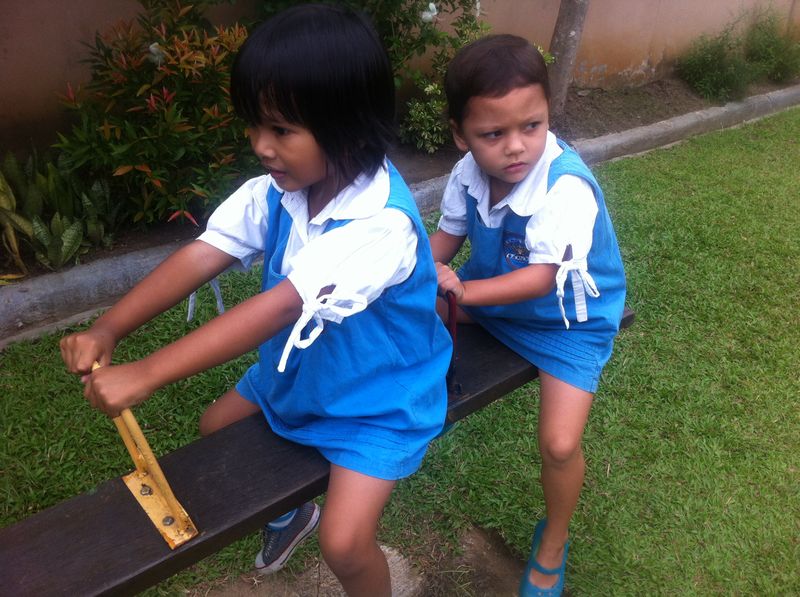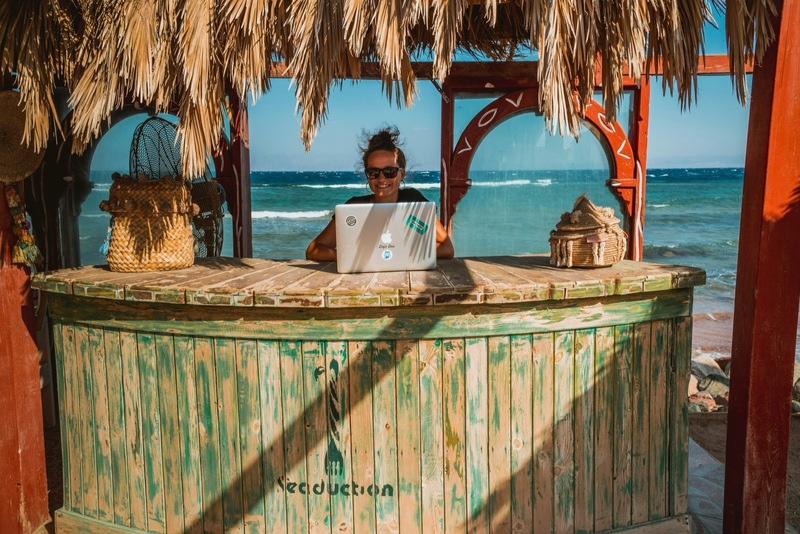We are definite advocates for schooling children anywhere around the world. You can read all about our unschooling endeavours here and then check out Andrew's opinion.
If you have traveled overseas for any length of time with your children, you have definitely noticed how they are incredible sponges of slang, accents, and even new languages. Who would have thought that Allen’s Tours in Belfast would have been a classroom for new figures of speech? Kids are like that. They don’t always think of travel as a single journey to a specific destination. Children are in the moment, absorbing everything around them. Once you realize this, you can start to use travel as a way to vastly improve kids language skills.

If you have the means and desire to travel where you want when you want, you can use each nation and city you stop at as a new classroom for your children. If your child is making great progress in Spanish, learning by osmosis everywhere you go in public and on the TV, try to travel to Spanish speaking nations fairly often. If you can supplement these travels (passive training) with active training such as Rosetta Stone, your child may be near fluent before you can believe it. It isn’t common for world traveling children to become conversant in numerous languages.
Another way to let this happen naturally is to allow kids to explore. Children should be supervised, of course, and not every place on earth is equally kid friendly. But when children are allowed to set their own goals and work to achieve them, even if all they’re doing is leading you to the gelato shop they like, they can learn a lot about the language around them. Goals are achieved by asking questions. When kids learn how to identify people who can answer their questions, and are encouraged to do so, they can learn amazing new ways to learn and express themselves.
Another way to help accelerate kids as they learn a new language is to absorb local entertainment and media. It doesn’t matter if you can’t totally understand what is being said. Kids will make mental connections that you don’t even realize, laying a strong foundation for later language sophistication. So if you are living in a nation that speaks your language different than the people back home, or speaks an entirely new language, go see theater productions, watch movies, play the news on TV in the language spoken by the people in that region. By making a new language the atmosphere in which children live, they will invariably become part of the conversation.

Kids are natural language sponges. There are many advantages to learning a new language while young. Not only are there employment opportunities for people fluent in two or more languages, there are also social advantages. Kids who know how to speak in another tongue learn a lot of special insights about the world. There are many doors open to them that remain closed to the monolingual. Nobody regrets learning a new language. Because kids do this so quickly, intentionally facilitate this process with your kids, and you’ll be amazed at the results.
Andrew is a recent marketing graduate who enjoys blogging about anything and everything that interests him. Currently he is fascinated with travel and the technological advancements in travel, but also has a strong connection to the education community.













Write Your Comment
Please DO NOT include links, URLs or HTML in your comments - they will be automated deleted and you will waste your time.